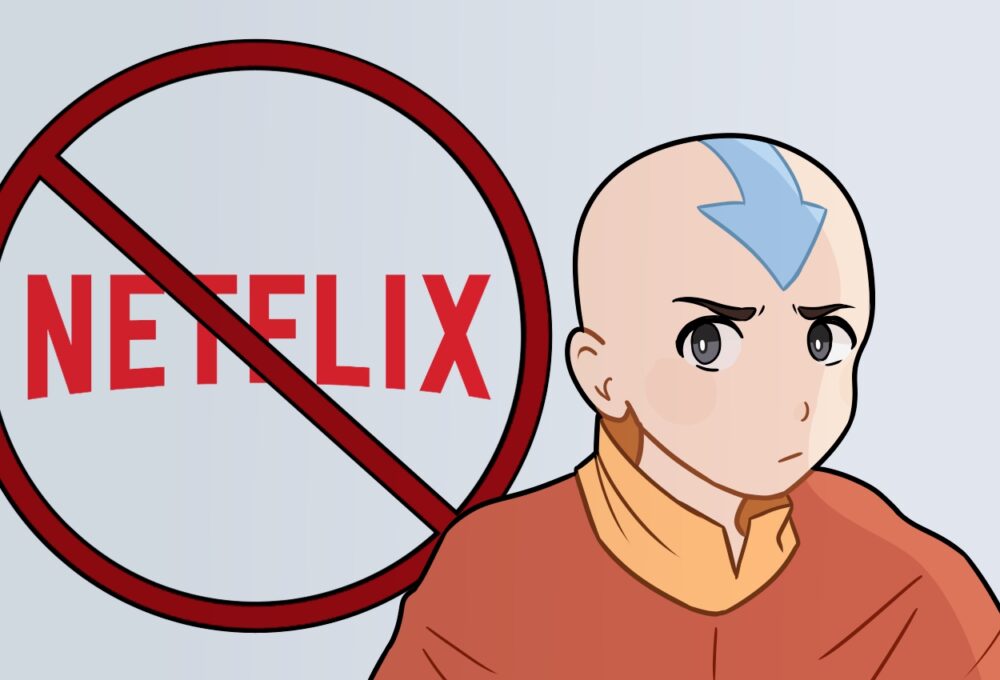
By Natalie Tran
Yes, you read that right. It seems like 2020 just got worse (if that’s even possible), especially for the “Avatar: The Last Airbender” (ATLA) fans out there.
Only two days before “The Legend of Korra” was set to debut on Netflix, co-creators of ATLA Bryan Konietzko and Michael DiMartino publicly announced they will no longer be involved in Netflix’s upcoming live remake of the show.
In an open letter to Avatar fans, DiMartino revealed that he and Konietzko had left the production in June this year after spending two years working on the project.
“When Bryan and I signed on to the project in 2018, we were hired as executive producers and showrunners. In a joint announcement for the series, Netflix said that it was committed to honoring our vision for this retelling and to supporting us on creating the series,” DiMartino said. “Unfortunately, things did not go as we had hoped.”
While DiMartino and Konietzko tried to be open-minded and collaborative with members of the development team, they both felt unable to guide the series into the direction they initially envisioned it to go.
Konietzko also expressed his feelings on their departure in a statement posted on Instagram.
“Though I got to work with some great individuals, both on Netflix’s side and on our own small development team, the general handling of the project created what I felt was a negative and unsupportive environment,” Konietzko said.
This is sad news indeed, especially since fans were so eager for another live remake after the first live-action attempt in 2010, “The Last Airbender,” was a huge flop, earning a score of 5% on Rotten Tomatoes.
There was a multitude of mistakes in the live-action adaptation, one being the ominous tone depicted throughout the entire runtime of the movie.
In the animated series, Konietzko and DiMartino tried to portray a comedic and light-hearted atmosphere while balancing it with more mature themes, such as death, war and abuse. However, 2010’s “The Last Airbender” did not mimic the tone of the original series whatsoever. Almost all of the humor was drained out of the main characters, specifically Sokka, who was originally the source of comic relief in the cartoon.
And to top it all off, almost all of the main characters in the 2010 live-action were whitewashed, tarnishing the film’s reputation more than ever.
The Avatar universe is solely based on an amalgamation of Asian and Indigenous cultures. Unfortunately, it seems as if that wasn’t taken into consideration at all when casting roles for “The Last Airbender.” Leading protagonists Aang, Katara and Sokka (just to name a few) were all played by white actors.
Hollywood has had a long history of whitewashing and “The Last Airbender” serves as just one example of it.
It is understandable as to why fans are worried about the upcoming movie. Now that Konietzko and DiMartino have left the production, many are speculating that Netflix will revert back to whitewashing when casting roles.
“When I heard that the [Avatar: The Last Airbender] creators quit Netflix’s live-action remake, I lost all hope of it being good to be honest,” sophomore Antoinette Cortez said. “If Netflix is fully in charge of the live-action, I don’t trust that it’ll follow the original show.”
Whitewashing in the film industry has been a prevalent issue despite much controversy and backlash. One recent case is Disney’s live-action Mulan accused of being “too white behind the camera” by Keshav Kant in a Metro UK article.
Although Disney’s Mulan had an all-Asian cast, many were upset with how the majority of the behind the scenes staff were white. With a white director, a white costume designer, four white screenwriters, a white composer and much more of the staff being non-Asian, many felt that the story wasn’t as authentic and that more Asians should have been included in the creative and story telling process.
“After finding out that Disney’s Mulan had an almost entirely white behind the scenes staff, I was shocked,” sophomore Sierra Springer said. “This not only deprived the movie of authentic Asian culture, but it denied the opportunity for Asians and other minorities to work on a movie in this already whitewashed industry.”
Whitewashing in the film industry needs to stop. It’s insensitive and discriminatory towards people of color, especially when it comes to stories that originally portrayed non-white characters. Hopefully, the next live-action Avatar will move on and learn from the past mistakes in “The Last Airbender” and evolve into a more culturally appropriate movie, even without DiMartino and Konietzko in its production.





